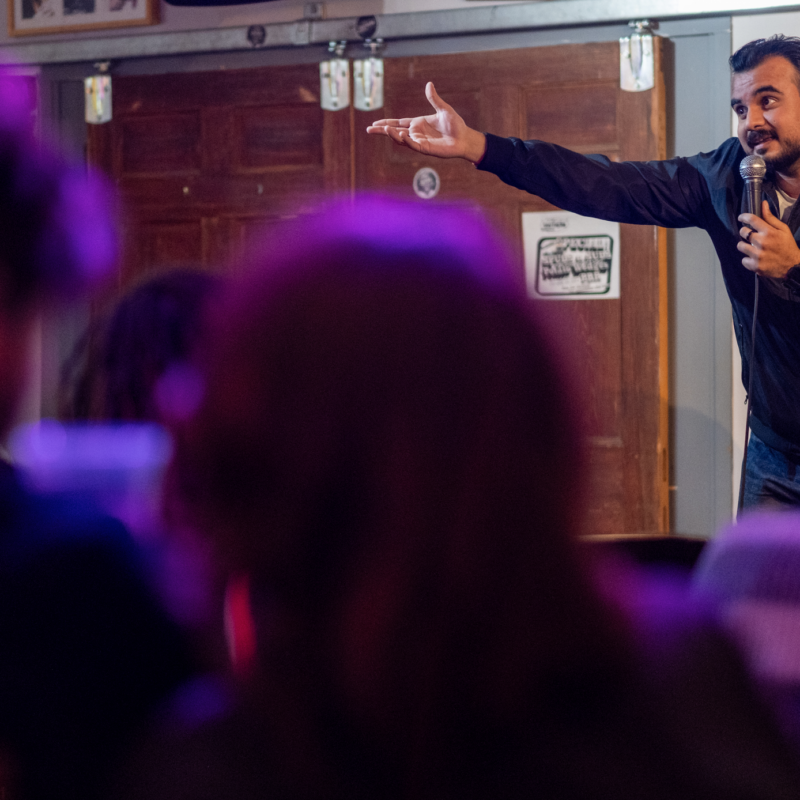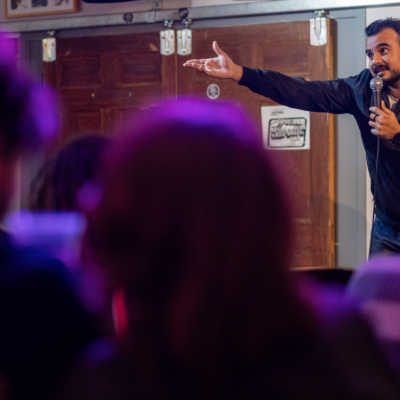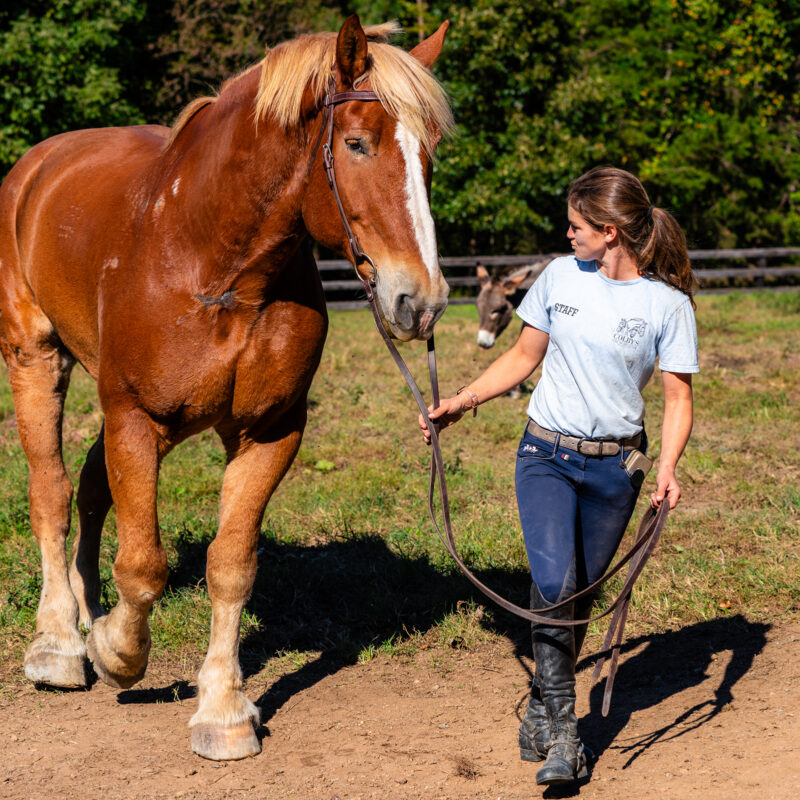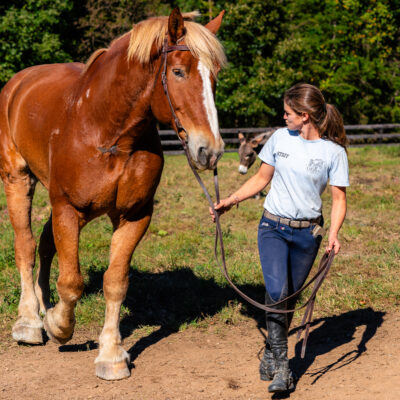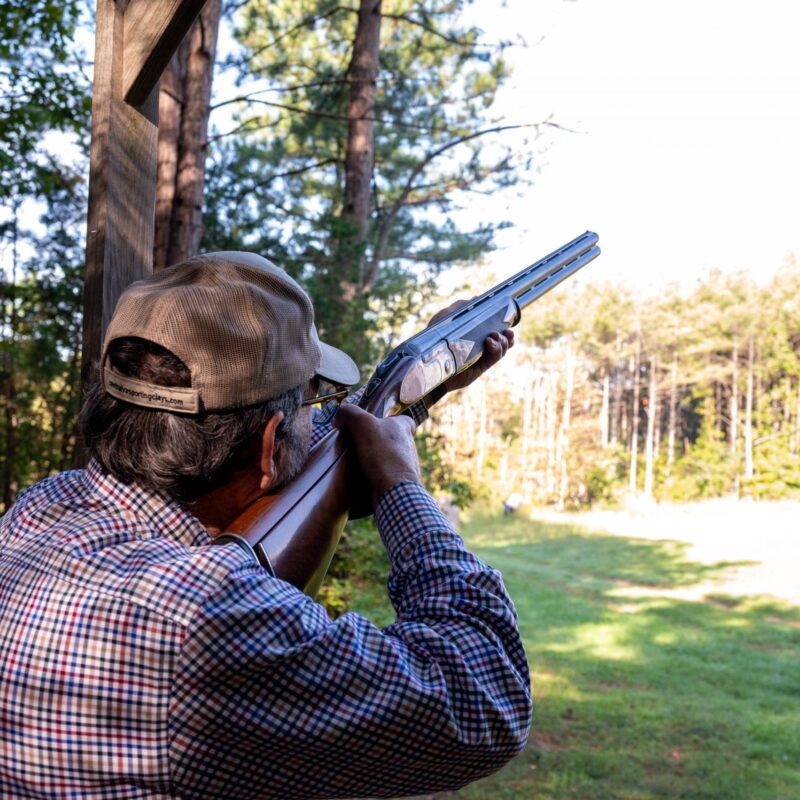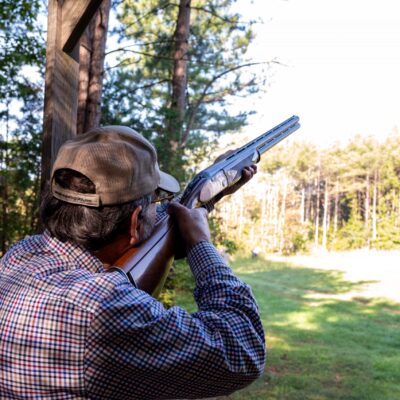In December the Performers Exchange Project introduced Charlottesville to a play that was so vast in scope and rich in texture that one C-VILLE writer could but compare it to an impressive spread of tapas. Our American Ann Sisters (say it aloud to get the pun), which ran this winter at Live Arts, loosely followed the lives of the three Peabody sisters as they navigate the joys and pitfalls of womanhood in 19th-century Salem, Massachusetts. Oh, and Phyllis Diller, Frida Kahlo, pigtailed little girls and crossdressers all managed to make it in there too.
|
Doreen Bechtol and Sian Richards in Our American Ann Sisters at Live Arts this winter. The Performers Exchange Project uses actors’ movements as building blocks for all of the play’s other aspects—including the story. |
Now PEP is packing up the whole big mess of a picnic—the elaborate and scary costumes, the curtain that hangs upstage and the swing that hangs in the middle of it all—and heading to Afton for two shows at the Hamner Theater on the 25th and 26th. It’s a trial run for what founding member Jennifer Hoyt Tidwell says will be a series of shows they’ll perform with playwriting workshops around the country. They’ve received invitations from as far as Rhode Island. It’s a fresh experiment for the ensemble, who always seem to be pushing the boundaries of local theater as they did with the two carnivals they arranged (Shentai and Wunderkammer), as well as in their two plays to date: Zelda & Lucia’s Loony Bin Tragedy and Dido Versus The Squid Monster.
“I’m really curious about what happens when you get past the new excitement of doing it, and you have to push through to staying alive in the play somehow,” says Tidwell. “I’ve never had the opportunity to do that.”
“You’ve sort of just begun, and then the show ends,” Sian Richards, another PEP founder, adds. “And you move on to something else.”
Process and product are of equal importance in Our American Ann Sisters, even if the process is hard to explain. It riffs on techniques that Richards learned with PEP’s Martha Mendenhall when studying under D.C.-area theater luminary B. Stanley. The performers build out the plot by editing actors’ movements, or etudes, into a scene. Explains Tidwell, “If my motion was sweeping a floor, but all of a sudden I’m put in a scene where I’m shooting someone, that same action becomes killing someone.”
The performers then craft a text on top of the movement score that tries to tie it all together. That’s how the first act of Ann Sisters is meant to feel: like “darkness resolving into light” like in a sitcom or fairytale, while the second has a 19th-century American melodrama feel. (“Please help me grow, God. You know where,” one character says.) The third and final act is in the style of a Friar’s Club roast. And where most traveling theater companies send scripts to showcase what they’re offering, this script—they prefer to call it a text—doesn’t make sense as a standalone document. They’ve had to treat the play as a dance, sending a video that local filmmaker Brian Wimer shot at one of the Live Arts performances.
When PEP hits the road, explaining their technique will be half the battle. They’ve been invited to give a presentation to young playwrights at Hollins University in Roanoke. Adds Tidwell, “That’s what we’re going to try to articulate to them: How do you write when you don’t know anything about the action?”
Mind you, these are students in a conventional playwriting program at a conventional college. PEP will not hold back. Tidwell says, “We can’t overdose them on how we do our performance.”
|
Deaf poet Peter Cook (left) and Kenny Lerner use American Sign Language to blur the lines between literature and performance. |
Something entirely different
What a wild March it’s been. First, AXIS Dance Residency waltzes in here and incorporates the physically handicapped into pieces arranged by world-renowned choreographers. What’s next, a deaf poet?
Yes, it turns out. Peter Cook has read (or performed, depending on how you look at it) his American Sign Language works since 1986 in the Flying Words Project alongside “normal” poet Kenny Lerner, who earned a Master’s in deaf education from UVA. The duo will perform at Old Cabell Hall on March 23 as part of UVA’s Deaf Culture Lecture Series.


